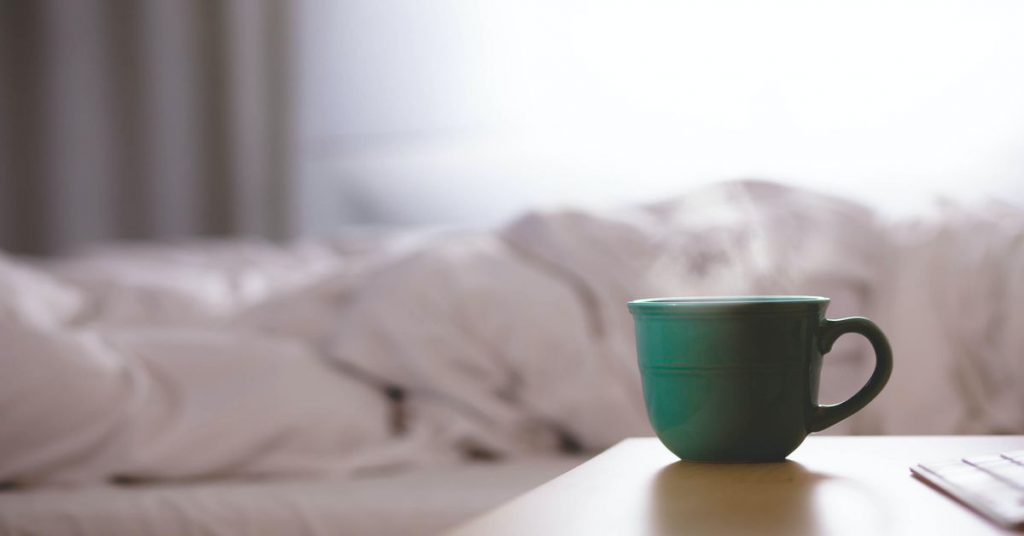Sleep is essential for good physical and mental health. It is during sleep that the body recovers from the day’s activities, repairs tissues, and replenishes energy stores. The brain, meanwhile, uses sleep to consolidate memories, clear out waste, and prepare for the next day. However, many people struggle to get a good sleep, which can have negative consequences on mood, memory, and overall health.
In this article, we will provide 17 proven tips to help you get a good sleep at night, including establishing a consistent sleep schedule, creating a relaxing bedtime routine, making the bedroom comfortable, and limiting screen time before bed. By following these tips, you can improve your sleep and wake up feeling rested and refreshed.
Why Is It Important To Get Good Sleep?
Getting good sleep is important for a number of reasons. First and foremost, sleep is essential for the proper functioning of the body and the mind. In the Indian tradition, sleep is also seen as a time of rest and rejuvenation for the soul. According to Ayurveda, the ancient Indian system of medicine, good sleep is an opportunity for the mind and body to repair and restore balance, and it is essential for maintaining good physical and mental health.
There are also practical reasons why peaceful sleep is important. Lack of sleep can affect your mood, memory, and ability to concentrate and make decisions, which can have negative consequences on your personal and professional life. Getting good sleep can also help to reduce the risk of certain health problems, such as obesity, heart disease, and diabetes.
Overall, good sleep is an essential component of good physical and mental health, and it is important to prioritize getting enough restful sleep on a regular basis.
You will also ❤️ these:
7 Powerful Ways To Curb Mobile Phone Addiction
How to Overcome Fear in Children: A step-by-step Guide
17 Proven Tips To Sleep Better At Night
Here are 17 proven tips to help you get a good sleep at night:
- Establish a consistent sleep schedule. Try to go to bed and wake up at the same time every day, even on weekends.
- Create a relaxing bedtime routine. This might include activities like reading, taking a warm bath, or practicing relaxation techniques like deep breathing or meditation.
- Make the bedroom comfortable. Keep the room cool, dark, and quiet, and invest in a comfortable mattress and pillows.
- Limit screen time before bed. The blue light emitted by electronic devices can disrupt the body’s natural sleep-wake cycle, so it is best to avoid screens for at least an hour before bed.
- Avoid caffeine and alcohol close to bedtime. These substances can interfere with sleep by disrupting the body’s natural sleep-wake cycle.
- Exercise regularly. Regular physical activity can help to promote better sleep, but it is important to avoid vigorous exercise close to bedtime.
- Avoid large meals and beverages close to bedtime. Eating a large meal or consuming a lot of fluids can cause discomfort and make it more difficult to fall asleep.
- Avoid naps during the day. While naps can be refreshing, they can also interfere with sleep at night.
- Use the bedroom only for sleep and intimacy. This can help to associate the bedroom with sleep, making it easier to fall asleep.
- Try relaxation techniques. Techniques such as progressive muscle relaxation, visualization, or deep breathing can help to calm the mind and relax the body, making it easier to fall asleep.
- Consider trying natural sleep aids. Aromatherapy and herbal remedies, such as chamomile tea or lavender oil, can help to promote relaxation and sleep.
- Get exposure to natural light during the day. Natural light helps to regulate the body’s natural sleep-wake cycle, so try to get outside during the day, especially in the morning.
- Avoid exposure to bright light before bed. Bright light can disrupt the body’s natural sleep-wake cycle, so try to dim the lights an hour or so before bed.
- Use white noise. A white noise machine or app can help to mask distractions and promote sleep.
- Avoid clock-watching. Looking at the clock can increase anxiety and make it harder to fall asleep.
- Try not to worry about falling asleep. This can create a vicious cycle of anxiety and difficulty sleeping. Instead, focus on relaxing and letting go of the day’s stress.
- If sleep problems persist, consider seeking help. If you are still having trouble sleeping despite trying these tips, it may be helpful to speak with a healthcare provider or a sleep specialist.
How To Create A Restful Environment For A Good Night’s Sleep
Here are a few tips for creating a restful environment for a good night’s sleep:
Keep the bedroom cool, dark, and quiet. A cool, comfortable temperature and minimal noise and light can help to create a calming environment that is conducive to sleep.
Use comfortable bedding. Invest in a comfortable mattress, pillows, and bedding that will support a good night’s sleep.
Use natural sleep aids. Aromatherapy and herbal remedies, such as chamomile tea or lavender oil, can help to promote relaxation and sleep.
Practice yoga or other relaxation techniques. Yoga and other relaxation techniques, such as pranayama (breathing exercises) or shavasana (corpse pose), can help to calm the mind and relax the body, making it easier to fall asleep.
By following these tips, you can create a restful environment that will help you to get a good night’s sleep.
In conclusion, getting a good sleep is essential for good physical and mental health. If you are struggling to sleep well, there are many things you can try to improve your sleep, including establishing a consistent sleep schedule, creating a relaxing bedtime routine, making the bedroom comfortable, and limiting screen time before bed.
By following these tips, you can improve your sleep and wake up feeling rested and refreshed. If you are still having trouble sleeping despite trying these strategies, it may be helpful to speak with a healthcare provider or a sleep specialist.
Download the Paavan App for more such lifestyle related solutions.
Frequently Asked Questions
Question 1. How much sleep do I need?
The amount of sleep you need varies depending on your age, lifestyle, and overall health. Generally, adults need 7-9 hours of sleep per night, while children and teenagers may need more.
Question 2. What are some common sleep problems?
Common sleep problems include difficulty falling asleep, waking up frequently during the night, and feeling tired upon waking.
Question 3. What are some causes of sleep problems?
There are many potential causes of sleep problems, including stress, anxiety, depression, unhealthy sleep habits, and medical conditions.
Question 4. Can sleep problems be treated?
Yes, sleep problems can often be treated with lifestyle changes, such as establishing a consistent sleep schedule and creating a relaxing bedtime routine. In some cases, medication or therapy may also be helpful.
Question 5. How can I improve my sleep environment?
To improve your sleep environment, try to keep the bedroom cool, dark, and quiet, and invest in a comfortable mattress and pillows. Avoid screens and bright lights close to bedtime, and consider using natural sleep aids, such as aromatherapy or herbal remedies.






